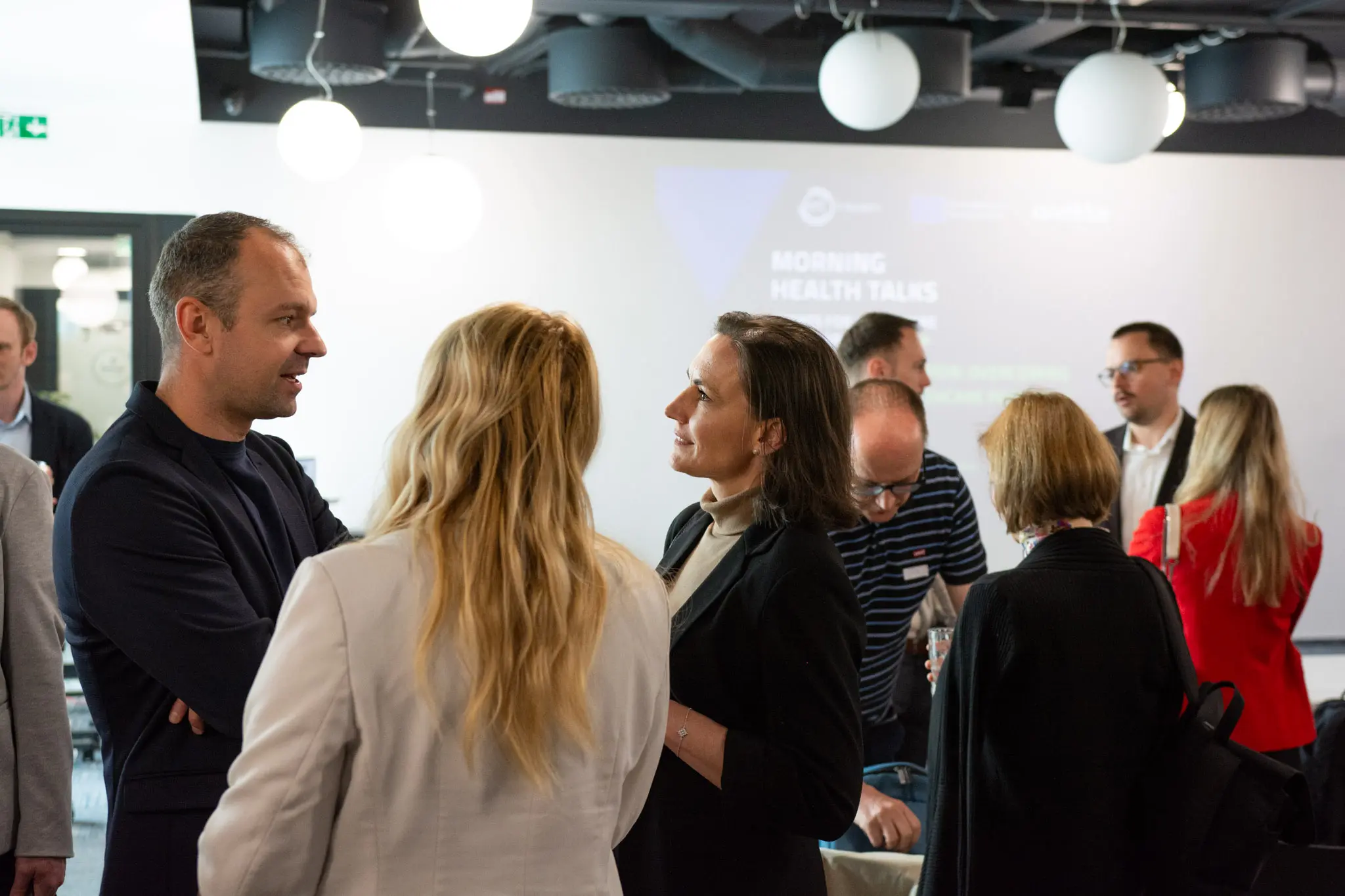Morning Health Talks Bratislava 2025: From barriers to implementation – what it takes to innovate in healthcare
In Bratislava, over 40 representatives from hospitals, startups, ministries and support organizations gathered to answer a simple yet critical question:
Is healthcare innovation really just about the money?
The May edition of Morning Health Talks 2025, organized by Civitta Slovakia as part of the EIT Health representative for Slovakia, focused on the deeper barriers and opportunities surrounding the implementation of innovations in Slovak healthcare. The event, hosted at The Spot in Sky Park Offices, created space for much-needed dialogue between providers, policymakers, entrepreneurs and international experts.



A provocative theme and purpose
While healthcare investment remains a hot topic, the event challenged this narrative by focusing on systemic and operational barriers, such as missing implementation frameworks, unclear regulations, lack of digital readiness, and institutional inertia. Drawing on the theme “Implementing Innovation in Healthcare: Is it all about the money?”, participants explored how to go beyond ideas and pilots to systemic adoption and scale.
Insights from across Europe
The event opened with an international perspective from Cristina Baghiu, CEO of Romania’s Digital Innovation Zone (eDIH), who presented how structured support mechanisms like “test-before-invest” and CTO-as-a-service can reduce risks for hospitals and startups alike. She also shared challenges, including how many providers still don’t fully understand how innovation support can help them.
Matej Mišík (HEPII) followed with a systemic diagnosis: Slovakia is not only aging, but falling behind in dealing with modern chronic diseases and innovation implementation. He emphasized the need for “implementation science” and national coordination if Slovakia is to catch up with peers.
Michal Ivantyšyn (Health Hub Slovakia) advocated for clinical trials as a gateway to innovation by showcasing how countries like Denmark and Israel treat trials not only as research, but as innovation infrastructure. Slovakia, in comparison, is drastically underperforming.
Hospitals at the frontline
Real-world perspectives came from hospitals actively involved in innovation. Kristián Vranák (University Hospital Martin) discussed data gaps and certification hurdles in deploying AI in practice. Juraj Studeník (Innovation Centre FDR BB) shared how the hospital is building internal capacity through grant offices, startup collaboration and R&D teams by drawing inspiration from high-performing hospitals abroad.
Katarína Siebenstich, from 365care.io, closed with a raw reflection from a startup’s point of view. Despite strong pilots and hospital interest, real-world implementation of remote patient monitoring has been slow, hindered by budgeting challenges and missing systemic support. “We had to take ten steps back and start again with educating doctors, building trust, and helping hospitals understand what innovation actually takes,” she said.
What did we learn?
The closing discussion made one thing clear: money matters, but systems matter more. Across all speakers, key needs emerged: national standards for clinical validation, incentives for adoption, regulatory clarity, and a stronger culture of experimentation within hospitals.
Moving forward
The Bratislava edition of Morning Health Talks 2025 served as a valuable opportunity to bring together a wide range of voices from across the healthcare innovation landscape. While no single event can solve systemic challenges, the discussions highlighted a growing willingness among stakeholders to engage with the realities of implementation, and to explore how international experience, clinical readiness, and local experimentation can help Slovakia advance in this space.